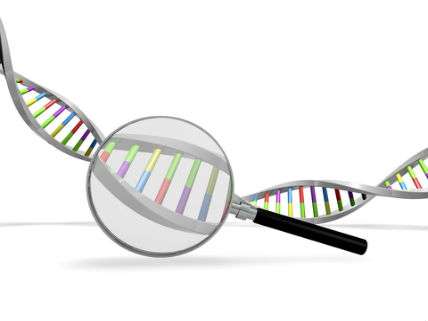Of Course People Should Have Access to Their Genetic Data!
I don't want to have a "conversation" with regulators; I want them to get the hell out of the way

The idiots, ah regulators, over at the Food and Drug Administration bascially shut down the consumer genetics company 23andMe (and its competitors) back in 2013 based on entirely specious worries that consumers would be confused by the genotype screening test results the company offered in its Personal Genome Service. In one scenario the FDA idiots, ah regulators, suggested that women who received results suggesting that they carried genetic variant of BRCA cancer propensity genes would panic and take butcher knives to their breasts. All right I exaggerate just a bit, but what the agency did write was:
For instance, if the BRCA-related risk assessment for breast or ovarian cancer reports a false positive, it could lead a patient to undergo prophylactic surgery, chemoprevention, intensive screening, or other morbidity-inducing actions, while a false negative could result in a failure to recognize an actual risk that may exist.
What sort of supposedly misleading information did 23andMe actually give its customers about BRCA mutations:
This report covers three of the most common mutations that cause HBOC syndrome – 185delAG, 5382insC, and 6174delT. These mutations are most common in people with Ashkenazi Jewish ancestry. Keep in mind that having one of these mutations does not necessarily mean you will develop cancer. Similarly, you can still develop cancers associated with HBOC syndrome even if you don't have these mutations. Many other rare mutations in the BRCA1 and BRCA2 genes are associated with HBOC syndrome, but are not reported here. …
This is not a diagnostic test. If your results show that you have a mutation, consult with a healthcare provider about confirming the result. Genetic conditions run in families so consider also sharing your results with family members.
If you don't have any of the mutations but you think you may still be at risk for HBOC syndrome due to family or personal history of cancer, you should also consult with a healthcare provider.
The actual reports to which customers like me had access were quite extensive and linked to all of the studies upon which 23andMe researchers based their interpretations.
Lots of bioethicists are still telling researchers to withhold genetic information from their patients and subjects. I am happy to report that human genetics researcher Sarah Nelson has a terrific article in Nature arguing that "geneticists should offer data to participants." About damned time! When she was asked to join a whole genome sequencing project she was told that she would not be given access to her results. This is crazy. Ignorance is not bliss for everybody. Among her salient points are:
As awareness and usefulness of this information increases, I fear that potential volunteers who are refused access to their genetic data will become less willing to donate them to science. The genetics-research community must therefore update its stance on returning personal data. …
…beyond the lab, more people now want and expect access to all kinds of personal data, a trend that shows no signs of slowing. Health data are no exception, as evidenced by the flood of wellness and 'mobile health' apps that are now coming to market. Future generations will take for granted that our personal computing devices are vehicles for almost unlimited 'quantified self' and self-tracking activities.
Several online platforms exist to help people to explore their genetic data, developed by for-profit companies, academic groups or by self-taught citizen scientists. Since launching in 2011, the site openSNP has drawn more than 4,000 users, half of whom have uploaded genetic data. The DNA.LAND platform has attracted more than 32,000 contributors since its release last October. Launched in 2008, and therefore one of the earliest third-party interpretation tools, Promethease reports performing hundreds of analyses daily. Other tools, such as GEDMatch and Genome Mate Pro, attract thousands of users who are eager to incorporate genetic analyses into their genealogical research.
Many scientists are suspicious and occasionally derisive of consumer or 'recreational' genomics. Although these products have their flaws, they underscore what citizens can and want to do with their genetic data. For the genetics-research community to maintain its good relationship with volunteers, it must take these activities more seriously….
…as researchers, don't we have an obligation to respect the individual autonomy of participants seeking their raw data? Asking for access is not the same as asking for ownership or control, just for a reasonable reciprocity. Let's have the conversation.
I don't want to have a "conversation" with regulators and bioethicists; more and more people like me just want them to get the hell out of the way.
Speaking of Promethease, click on over to see what it says about my many genetic flaws.


Show Comments (80)